WASHINGTON (Reuters) - The United States on Thursday suspended sanctions barring U.S. investment in Myanmar
in response to political reforms in the poor southeast Asian state,
drawing praise from some U.S. lawmakers but criticism from human rights
advocates.
"Today we say to American business: invest in Burma and do it responsibly," Secretary of State Hillary Clinton said.
She appeared with Myanmar's Foreign Minister Wunna Maung Lwin, on his long-isolated nation's first official visit to Washington in decades as ties between the two countries warm rapidly.
Clinton said Washington
would issue a general license to permit U.S. investments across
Myanmar's economy, and U.S. energy, mining and financial service
companies were all now free to look for opportunities in the nation
formerly known as Burma.
But Clinton
stressed that the laws underpinning U.S. sanctions on Myanmar would
remain as Washington seeks to maintain its leverage while pushing the
reclusive country's government further on democratic reforms.
"We are suspending sanctions. We believe that is the appropriate step for us to take today," Clinton said.
"We will be keeping
the relevant laws on the books as an insurance policy, but our goal and
our commitment is to move as rapidly as we can to expand business and
investment opportunities."
Elaborating on the policy shift, President Barack Obama
said Washington would work to "ensure that those who abuse human
rights, engage in corruption, interfere with the peace process, or
obstruct the reform process do not benefit from increased engagement
with the United States."
Clinton said the
United States would maintain its arms embargo on Myanmar and urged the
country's new civilian-led government to take further steps to exert its
control over the military, which ruled the country since a 1962 coup.
RAPID RAPPROCHEMENT
Thursday's
announcement marked the latest step in a rapid rapprochement between the
United States and Myanmar, which has seen a dramatic series of
political reforms in the past year.
Myanmar's reformist, quasi-civilian government took
office a year ago, ending five decades of military rule, and has started
overhauling its economy, easing media censorship, legalizing trade
unions and protests, freeing political prisoners and agreeing to
ceasefires with a dozen ethnic rebel armies.
Nobel Peace Prize
laureate and pro-democracy icon Aung San Suu Kyi has been elected to and
taken a seat in parliament.
Suu Kyi's National League for Democracy, Myanmar's
biggest opposition force, won a 1990 election by a landslide but the
country's military refused to cede power and for two decades suppressed
the party's activities, jailing many of its members.In response to the reforms, United States has promised to begin unwinding the complex web of U.S. sanctions that have contributed to the country's isolation and driven it closer to its powerful neighbor, China.
Clinton said Derek
Mitchell, the State Department's coordinator for Burma policy, would be
nominated to return to the country as U.S. ambassador and Maung Lwin
said his government had appointed its current permanent representative
to the United Nations to fill its ambassadorial slot in Washington.
Pro-democracy advocates have urged the United States to
move cautiously, saying sanctions are an important tool to maintain
pressure on Myanmar's government to follow through on pledges of greater
democratic openness for its 60 million people.ACTIVISTS CRITICIZE MOVE
U.S. Campaign for
Burma, a human rights advocacy group that opposes wholesale lifting of
sanctions until the government makes deeper reforms, said Myanmar's army
continued to wage a brutal campaign against the Kachin ethnic minority
in northern Myanmar and the new U.S. policy would do little to stop it.
The "symbolic
exclusion of investment with the military will not prevent the military
from continuing to attack and assault ethnic villagers in the name of
providing security for foreign investment projects," the USCB said in a
statement.
The military
offensive in Kachin State had created about 100,000 refugees and this
month, Myanmar Army soldiers had committed gang rape against Kachin
women and girls -- "one egregious case among many that are ongoing," the
group said.
The Kachin
fighting, which erupted anew a year ago after a 16-year truce, drew a
call from U.N. chief Ban Ki-moon for an end to attacks by all parties in
Myanmar.
Bill Davis, Burma
Project director of the group Physicians for Human Rights, said Kachin
and other ethnic minority groups whose homelands hold Myanmar's natural
resources told him in interviews they are "still afraid of the
government."
"If the people of Burma do not trust their government, the U.S. administration should not either," he said.
A senior U.S.
official said U.S. investments in Myanmar would be subject to the
highest standards of corporate responsibility and that Myanmar's "bad
actors" would remain subject to sanctions on a list that would be
regularly updated.
"We will hold folks
accountable and look at various mechanisms going forward for ensuring
that there is oversight, that there is transparency and ...
accountability for the activities of our companies," said the official.
U.S. Senate
Republican Leader Mitch McConnell and Senator John McCain, said in a
statement Obama struck an "appropriate balance between encouraging the
process of reform now unfolding in Burma, while maintaining sufficient
leverage to continue pressing the Burmese government for additional
progress."
Another influential
lawmaker on Myanmar policy, Democratic Senator Jim Webb, however, said
Obama should have done more.
"The president has
wider powers with respect to economic sanctions, and he should use them
to lift all economic sanctions," he said in a statement, noting that the
European Union had already lifted its sanctions.
(Reporting By Paul Eckert; Editing by Cynthia Osterman)





















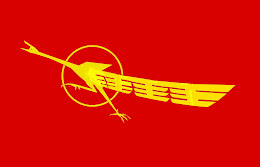





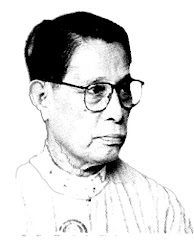

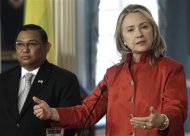

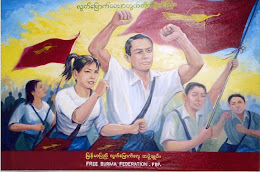





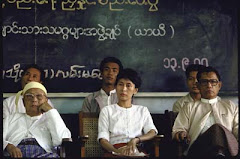

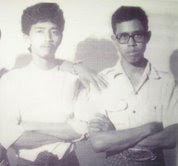

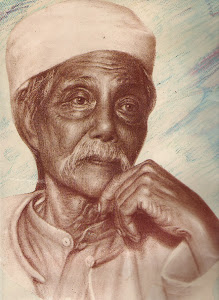
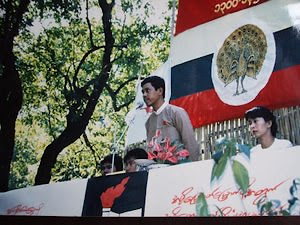
No comments :
Post a Comment